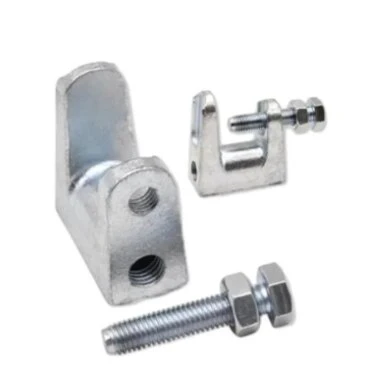Dec . 01, 2024 22:53 Back to list
chemical fixing bolts
Chemical Fixing Bolts An Overview of Their Application and Benefits
In the domain of construction and engineering, the reliability and durability of structures hinge significantly on the quality of their fasteners. One such innovative fastening solution that has gained traction is chemical fixing bolts. These bolts utilize chemical adhesives to secure themselves in place, providing a robust and long-lasting bond that traditional mechanical fastening systems often cannot achieve.
What Are Chemical Fixing Bolts?
Chemical fixing bolts, also known as bonded anchors or epoxy bolts, consist of a standard bolt or rod combined with a chemical adhesive. This adhesive, typically an epoxy resin, is injected into a drilled hole in concrete or masonry before inserting the bolt. Once the adhesive cures, it forms a strong bond between the bolt and the surrounding material, effectively anchoring it in place.
Advantages of Chemical Fixing Bolts
1. Enhanced Load Capacity One of the key benefits of chemical fixing bolts is their ability to handle greater loads than standard mechanical fasteners. The chemical bond distributes load more evenly across the securing material, reducing the risk of failure under significant stress.
2. Corrosion Resistance Many chemical adhesives are formulated to withstand harsh environmental conditions. This resistance to moisture and corrosive agents makes chemical fixing bolts an ideal choice for exterior applications or in environments prone to rust and deterioration.
3. Flexibility in Application Chemical fixing bolts can be used in a variety of base materials, including concrete, masonry, and even certain types of stone. This versatility makes them suitable for a wide range of construction and repair projects.
4. Minimal Vibration Sensitivity Traditional mechanical fasteners can loosen over time due to vibrations. Chemical fixing bolts, on the other hand, create a more stable bond that resists loosening, making them ideal for applications subject to dynamic loads.
chemical fixing bolts

5. Reduced Risk of Damage When correctly installed, chemical fixing bolts can minimize the risk of damage to both the bolt and the surrounding material. This qualitative advantage is particularly notable in delicate structures where extra care is needed.
Applications of Chemical Fixing Bolts
Chemical fixing bolts are used in a myriad of applications. In construction, they are valuable for securing structural elements like beams and columns, especially in large-scale projects such as bridges and high-rise buildings. Additionally, they are widely used in retrofitting and renovation projects, where enhancing the integrity of existing structures is paramount.
Another significant use for chemical fixing bolts is in the installation of heavy equipment and machinery. Industries such as manufacturing and energy often require attachment points that can endure heavy loads and vibrations. The use of chemical fixing bolts ensures that these installations remain secure over time, protecting both the equipment and the workers.
Installation Considerations
While chemical fixing bolts offer many advantages, proper installation is crucial for their efficacy. This process typically involves drilling a hole to the appropriate depth and diameter, ensuring it is clean of dust and debris before inserting the adhesive and bolt. The curing time of the adhesive must also be adhered to, as it plays a significant role in achieving the intended bond strength.
Conclusion
Chemical fixing bolts represent a pivotal innovation in fastening technology, offering superior strength, durability, and versatility compared to traditional options. Their applications span a wide variety of sectors, enhancing safety and structural integrity in countless scenarios. As continued advancements in chemical formulations emerge, the role of chemical fixing bolts in construction and engineering will undoubtedly grow, further solidifying their place as a reliable solution for secure fastening needs. As industries evolve, the adoption of chemical fixing bolts will prove vital in promoting longevity and stability in infrastructures worldwide.


